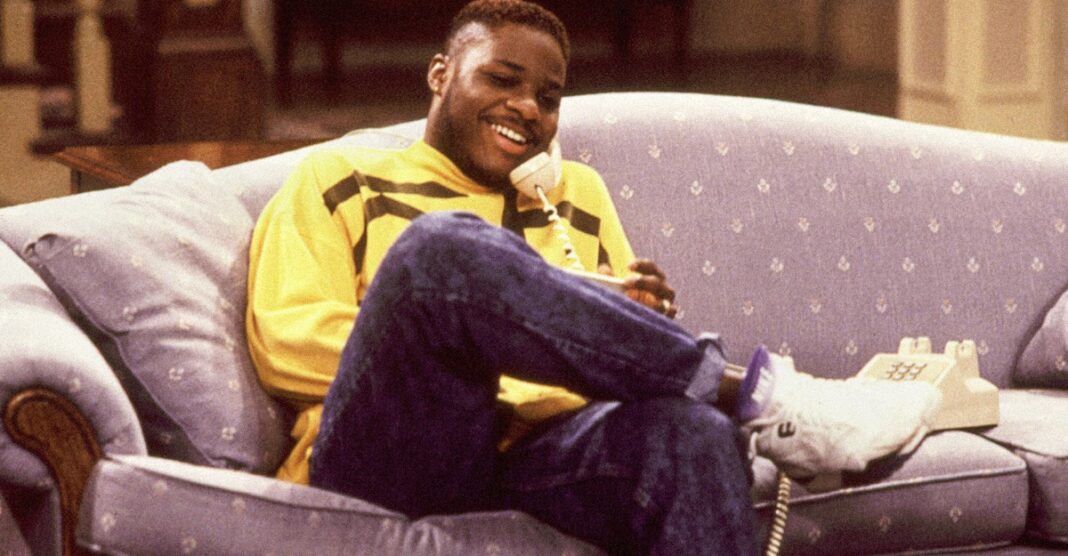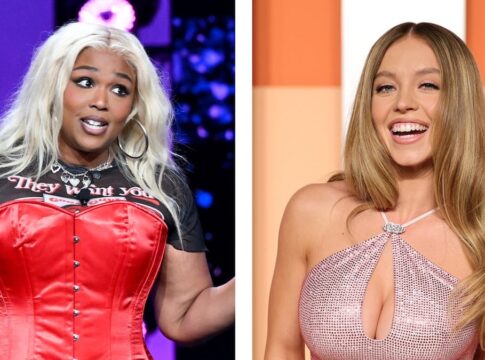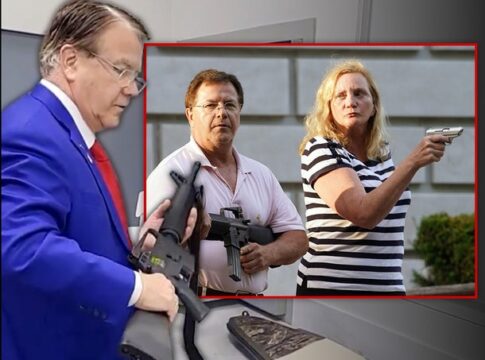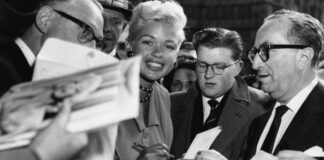In the first episode of The Cosby Show, Cliff Huxtable (played by Bill Cosby) walks into his only son’s messy room with a mission: getting him to care about improving his straight-D report card. But the teenager proves difficult to rattle.
After his father makes a big show of giving him Monopoly money and then taking it all away bill by bill for hypothetical expenses, Theo (Malcolm-Jamal Warner) holds firm in his assertion that he doesn’t need to emulate his parents in order to be happy. “If you weren’t a doctor,” he tells his father, “I wouldn’t love you less, because you’re my dad.” Can’t the same be true in reverse? For a moment, it seems as if Theo has gotten through. But instead, Cliff goes off, scolding his son for being “afraid to try, because you’re afraid that your brain is going to explode, and it’s gonna ooze out of your ears.”
The genius of the scene is that both characters are right. Theo is afraid to try, but he also recognizes one of his father’s limitations: Cliff has a very specific idea of what success looks like, which can burden his children as they try to live up to it. It’s a testament to Warner’s skill as a performer that even when Theo isn’t winning an argument with his dad, he evinces a complex vulnerability.
Warner, who died last week, at the age of 54, struck a delicate balance while playing Theo: He’s hubristic but not smug, clueless but not buffoonish. Nailing these nuances was key. Although today Cosby’s name is inextricable from his tarnished legacy, The Cosby Show was nonetheless groundbreaking in its portrayal of a well-educated, middle-class Black family—and Theo’s story bookends the series, starting with the Monopoly lesson and ending with his graduation from college. Cliff uses tough love to teach his son that hard work is instrumental to prospering in life. But Warner played Theo as the house jester, balancing the dramatic tension of his character’s uncertain future with his impeccable ability to deliver a one-liner. Ultimately, Theo’s development does not amount to simple “success” or “failure.” His arc comes into focus when he finds his sense of purpose—in part by challenging his parents’ judgments and assumptions.
As a high-school freshman at the start of the series, Theo isn’t much for studying. Instead, he hopes to skate by on charisma alone—which rarely works—and aspires to land a variety of improbable dream jobs, such as tennis pro, pilot, and model. Theo’s apathy serves as a counterpoint to Cliff’s moralizing about the importance of education and family values to one’s social mobility, which echoed Cosby’s own. In retrospect, Cliff’s fears about his son’s future foreshadowed the comedian’s public excoriations of Black youth, which drew national attention in the early 2000s—mainly, his charge that they were “going nowhere.” The harshness that sometimes emerges in Cliff’s approach to parenting lands with a more punitive thud in that context. And with Theo, we eventually see that the slacker persona his father has projected onto him is not the full picture.
Theo’s apparent lack of motivation occasionally drives his father to theatrical extremes. In one episode, Cliff enlists the entire family to simulate the “real world” for his son; the exercise walks Theo through getting a job, renting an apartment, and surviving life’s unpleasant realities for a day. Like the earlier Monopoly gambit, it doesn’t really work. When his mother, Clair (Phylicia Rashad), suggests afterward that he’s learned an important lesson, Theo clarifies for her. “I learned that when I go into the real world,” he says, “I don’t want to do business with anyone in my family.”
The episode’s punch line reflects a common parent-child dynamic: Rather than attempting to find common ground, both sides put up a wall—in the Huxtables’ case, through humor. The Cosby Show indulges in this again and again, as Theo’s parents invent dramatic ways to school their son; they even go so far as to stage a mock trial to catch Theo in a lie. Their son, meanwhile, typically shrugs it all off with a joke. The show’s early years often played the chasm between Theo’s overconfidence and the outcomes of his actions for laughs too. For example, take a scene in which he tries to impress his older sister Denise’s (Lisa Bonet) study buddy: Theo adopts a baritone voice, and then Denise manhandles him out the door.
As with many adolescent boys, Theo’s bravado is a mask for his still-developing identity. The relatability of his “fake it ’til you make it” attitude renders him endearing, even when he’s the butt of a joke. Still, Theo’s self-mythology suggests a latent sadness, perhaps stemming from a suspicion that he might live out his adult life as a regular person, rather than the educated professional his parents expect him to become.
But for as often as the show points out the teen’s foibles, Warner never lets viewers dismiss Theo outright. For a while, he animates his character’s puppyish demeanor with perfectly timed voice cracks and awkward body language. Yet the actor slowly recalibrates as both he and Theo age, shifting the fumbling swagger toward a more mature kind of self-assurance. Some of the show’s most rewarding scenes arrive when Theo, as an older teen, earns his father’s respect by showing up as his full self. On two separate occasions, Theo and his best friend, who goes by the nickname “Cockroach” (Carl Anthony Payne II), write a rap for a class assignment. Both iterations include catchy lyrics that demonstrate an understanding of the material; teens like Theo and Cockroach can do great work, the show suggests, when they have room to be creative.
It feels fitting, then, that Theo’s emotional turning point comes from a diagnosis that upends his parents’ skepticism about him. After he enrolls in college, Theo learns that he’s dyslexic, which reframes his academic challenges, flighty aspirations, and self-doubts. (Charting a clear path forward is hard when you believe that you aren’t smart enough to advance.) The revelation frees Theo from the “failure” narrative that the adults in his life have pinned on him; he begins performing better academically as a result. More important, he invests his downtime in a meaningful, altruistic pursuit.
As a volunteer at the local community center, Theo lights up while mentoring tweens who have struggles similar to his own, and not just because he’s good at it. Working with a younger generation gives Theo a platform to draw upon his life experiences and learn as he goes, affirming his newfound sense of accomplishment. When one of his advisers tells him he’s doing well but isn’t “there” yet, Theo agrees—a moment Warner underscores by smiling to himself as he murmurs, “But I’m growing.” The pleasure Warner brings to the exchange reflects just how much his character has transformed from an aimless teen afraid to fail into an adult who recognizes that trial and error are part of life.
The Cosby Show closes with the whole family gathering. Although Cliff reflects on the long, hard road his son faced to get here, Theo’s real triumph is different, and more significant. He’s no longer feigning confidence or struggling to understand why the things that come easily to others are so difficult for him. He won’t become a doctor or a lawyer. After years of effort, he’s defined what personal success means to him. A sense of direction is what his parents have wanted for him all along. And now he’s found it for himself.




